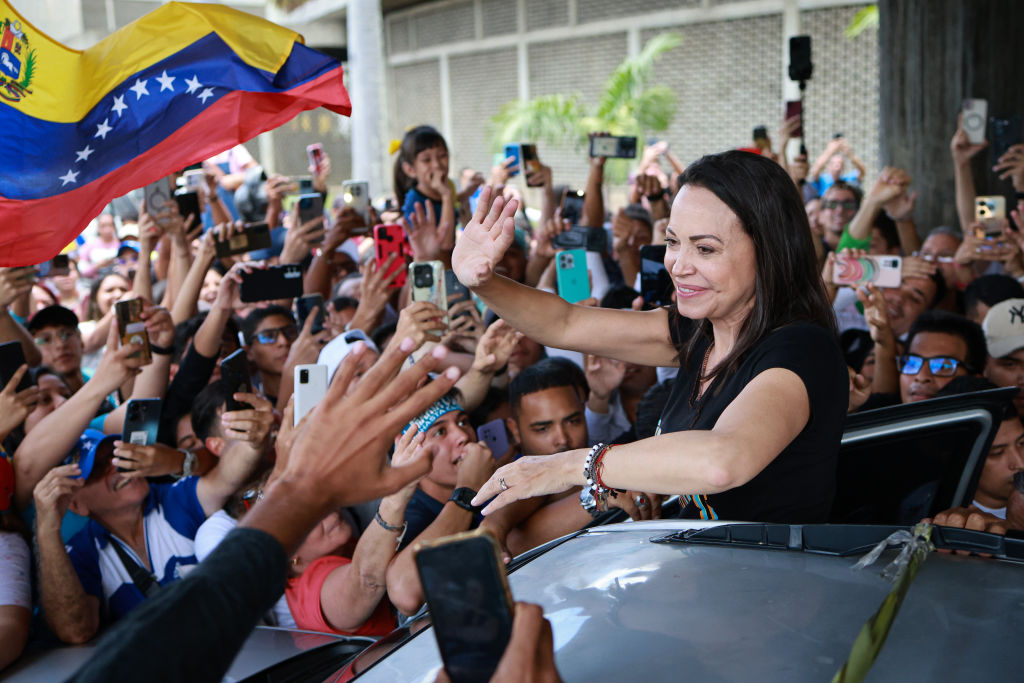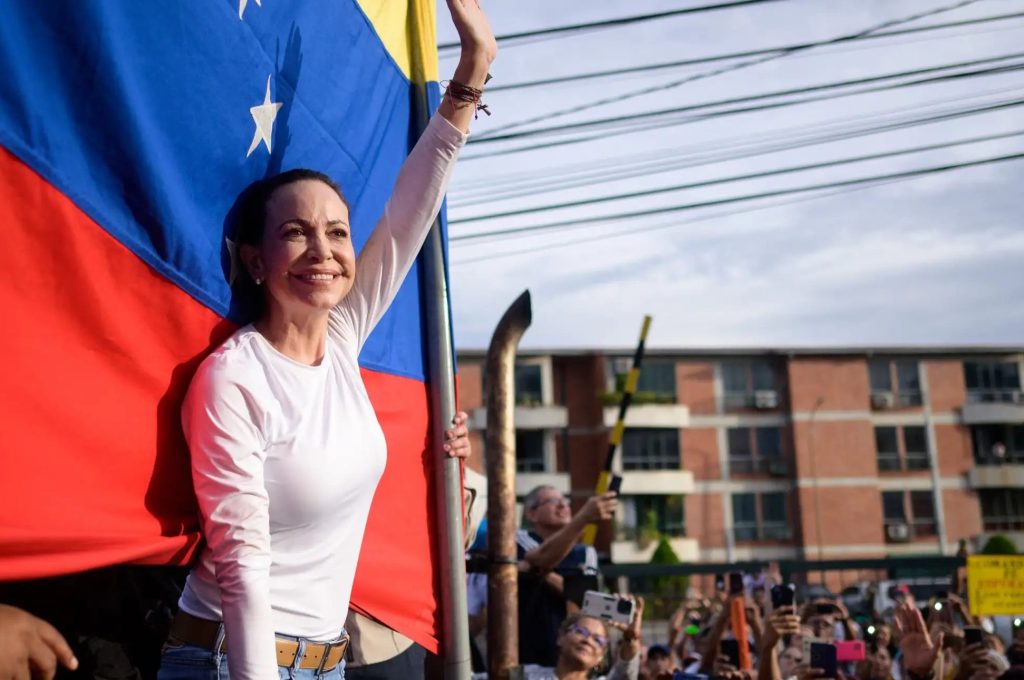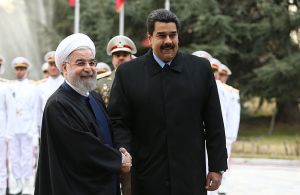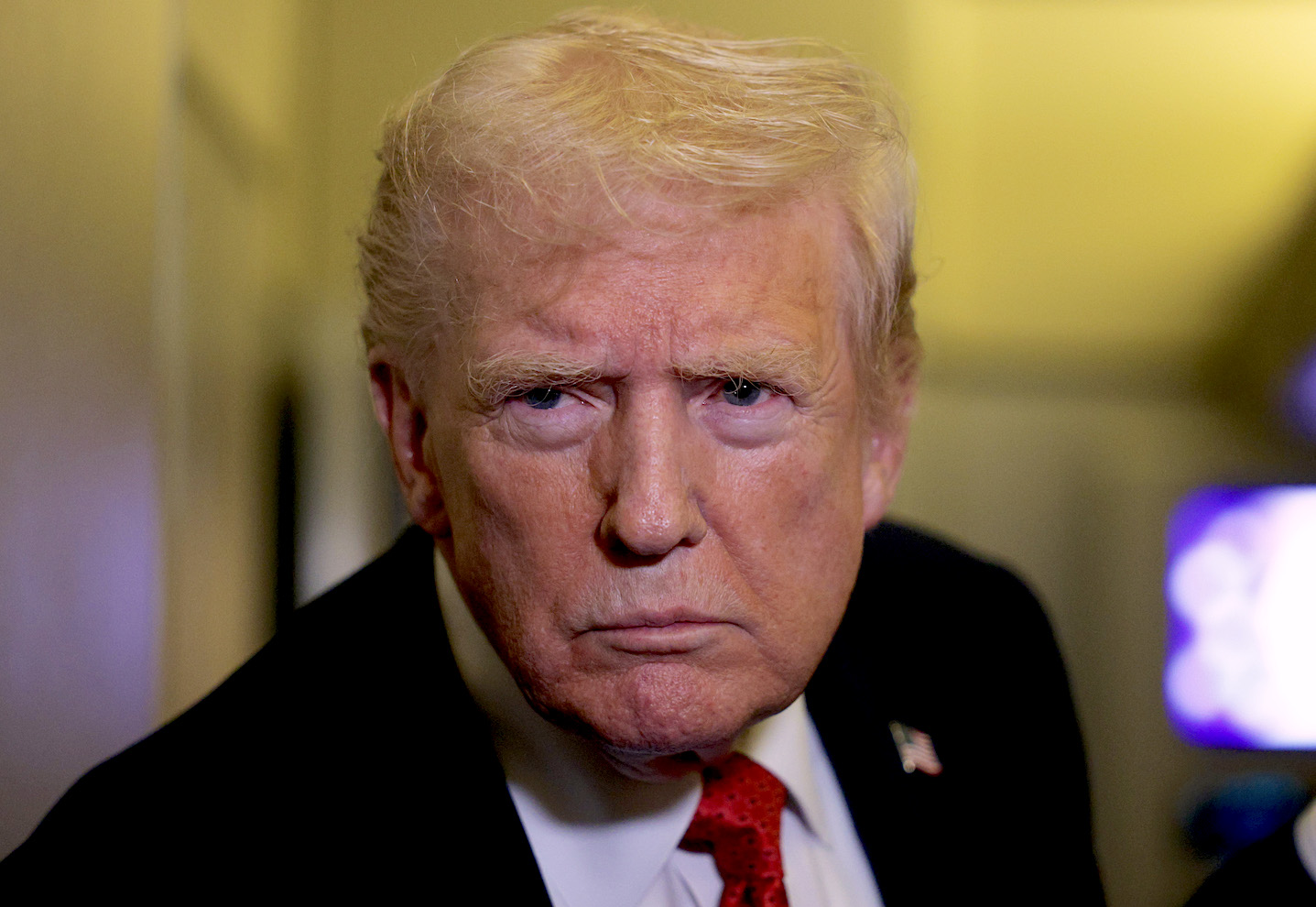Maria Corina Machado is showing the world how opposition politicians can fight an autocrat. When President Nicolás Maduro tried to thwart her campaign by banning her from taking domestic flights, she drove between her rallies on a motorcycle. When he then banned her from running as a candidate in Venezuela’s presidential election, which takes place this Sunday, she found a retired diplomat to run as her proxy. Without even being on the ballot, she may bring down Maduro’s socialist regime.
Machado mixes the crowd-pulling allure of Evita Peron with the politics of Margaret Thatcher
Venezuela is used to left-wing populists whipping up crowds by railing against America, the rich and capitalism in general. Machado is their equal and opposite. She’s a stylish fifty-six-year-old who mixes the crowd-pulling allure of Evita Perón with the politics of Margaret Thatcher. Her agenda is one of reconciliation, market reform and a pledge to end the Maduro experiment. Instead of offering subsidies and welfare, she promises free-market reforms, the freedom to work, to be independent and to own property. “Here, we decree the end of socialism!” she declared at one rally, to rapturous applause.
Machado may be a classical liberal, but she has shown the courage of a revolutionary. More than 100 of her staffers have been arrested by Maduro’s regime. Her remaining team are working under diplomatic protection in the Argentinian embassy. Anyone who helps her on the campaign trail by giving her food, accommodation or transport risks being arrested. But no one seems to care. Every attempt to stop her only seems to have strengthened her appeal and turned her campaign into a political odyssey.
In 2010, Machado ran as an independent for a parliamentary seat in the now obsolete National Assembly at the peak of the Chávez presidency and his “Cuban-like communism.” I was part of a small team of her supporters and saw her in action: precise, strict and ready to fight on until the end. She trained as an industrial engineer, and her discipline and exactness came through in the organization of what was, in effect, an insurgent campaign. I thought at the time that my country, if run by her, would work like a Swiss watch.
Instead, it has fallen apart. Since Maduro took office in 2013, the economy has contracted by 80 percent. A few years ago, you couldn’t find toilet paper in shops and people were eating out of bins. Some seven million people emigrated. Many risked the journey across the Darien jungle, losing family members as they tried to reach Panama en route to the United States. A quarter of Venezuelans now live abroad, myself included.
The country’s decay under twenty-five years of socialism explains why crowds come out for her in such numbers. People feel that they have nothing to lose. “They took so much from us that they’ve also removed our fear,” reads a banner held by a teenager in the eastern region of Monagas.
The despair which had engulfed Venezuela is yielding to optimism. “I’m twenty years old, I don’t want to leave the country!” says one Machado supporter. Even some public employees and soldiers are preparing to secretly change sides. Her message spreads virally, on social media, and her pop-up rallies are too big for the authorities to suppress. To minimize the retaliatory arrests of restaurant owners who serve her food, she brings packed lunches to the campaign trail.

Sometimes the crowds at her rallies are near-hysterical. Some supporters try to touch her, as if she’s a living saint. She leans into this image, embracing supporters who cry on her lap, and denouncing socialism while draped in rosary bead necklaces given to her by those in the crowd.
For his part, Maduro is rowing back on the socialist talk, even allowing the Americans to drill for more oil. His attempts at creating a global alliance of anticapitalist states has landed Venezuelans with dodgy imports from Iran and China and old Soviet military equipment that the Russians would otherwise bin. What remains of the once-booming nationalized oil industry is sending oil at reduced cost to Cuba. The Maduro experiment has been exposed as an unalloyed calamity.
But if Machado is formally banned from office, where does all this campaigning leave her? The candidate she’s backing, Edmundo Gonzalez, seventy-four, has no obvious way to put her into any position of power if he wins. He will have to grapple with a complex Chavista machine which won’t relinquish its privileges easily. If Venezuela were a functioning democracy, a new president would have the mandate and the ability to enact change — but it’s much harder to loosen the hold of a twenty-five-year autocracy.
Then again, Latin America is changing. Argentina has voted in Javier Milei to begin a kind of libertarian experiment. Even Lula da Silva and Gustavo Petro, who run Brazil and Colombia, have told Maduro that he should accept the election’s outcome, which even he may not be able to rig. Venezuela is the last dictatorship in the region, which means it can have a destabilizing influence on its neighbors. The US has recognized this for years — what has changed is that Latin Americans can see it as well.
It’s hard to conduct meaningful opinion polls in a dictatorship, but surveys have put Machado’s campaign ahead by thirty percentage points. And it’s impossible to ignore the so-called “street barometer” — the large crowds who act as if change has already come. The outcome of the election this weekend is anyone’s guess, but it’s now possible to say that Chavismo has been defeated in the streets.
This article was originally published in The Spectator’s UK magazine. Subscribe to the World edition here.


























Leave a Reply